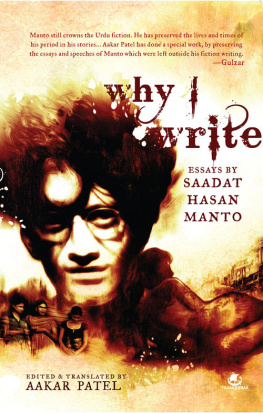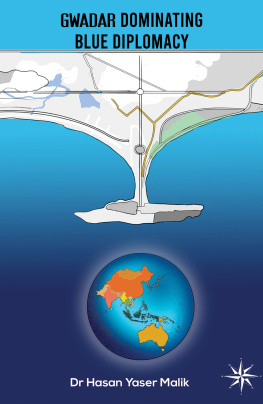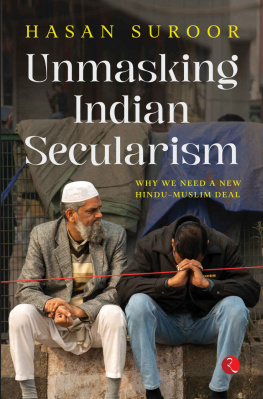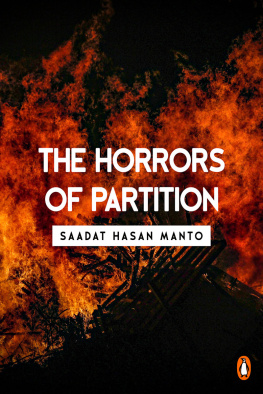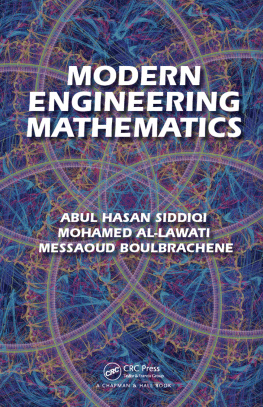Foreword
The memory of Muinuddin Chishti, the Sufi saint of Ajmer is much mired in mythology. It is therefore often frustrating to sift fact from fiction. Lovable as the legends are, they naturally insist that Chishti was great and many may want to know why he was considered to be so.
A man born in an Arab family on Persian soil, Chishti was almost fifty years old when he decided to make India his home at the beginning of the thirteenth century. What was it that made Chishti choose this path? Why did Chishti prefer to live and to die in India?
In The Book of Muinuddin Chishti the author opens wide the window of her imagination and travels back nearly a millennium to answer some of these questions. Through her words Chishtis life unfolds against the historical and social realities of his time. The author writes about Chishti as if the sage himself recites his story to her.
Chishti spent his entire life making sure that he remained humane when times were most hostile. He made himself so at home in his adopted land that when he died he was most mourned by those who did not belong to his creed. In The Book of Muinuddin Chishti, Chishti is portrayed as a man who stood up to the diverse challenges of the day but without offending the people he chose to live with. Here history revolves around a human being who was able to perfect the art of love in the midst of hate. The spirit of Chishti soars beyond the single-dimensional image of him as a man of one religion. He emerges as a major cultural broker, a person whose only politics was that of love. He comes alive as a beloved human being, far removed in time from the reader, but a dear, intimate friend nonetheless.
Above all, his story is an invitation to ordinary people that it is possible to balance the material with the spiritual here in this life.
New Delhi
May 2008 | Muzaffar Ali |
Preface
I discovered Sufism at a time in my life when my entire world was falling apart.
So, what is new? a Sufi would ask when faced with a similar situation, for according to mystics worlds exist in order to fall apart. What is important is to explore the alternatives to rage, revenge and militancy as responses to life when it seems to be less kind.
To understand Sufi philosophy is therefore a privilege and one of the most inspiring among the Sufi masters is Muinuddin Chishti. This book is an attempt to appreciate his story, as also the story of the beginnings of the Chishtiya tariqa in India, with some analysis of the time in which he lived.
The Chishti Sufi order was originally founded in Central Asia and Muinuddin was the first one to introduce the Chishtiya way of life in India, where he lived for over four decades. His disciples, Qutubuddin Bakhtiar Kaki, Baba Farid Ganj Shakr, Mubarak Hamiduddin Nagauri, Nizamuddin Awliya and Khwaja Nasiruddin Chiragh later fanned out into different parts of the Indian subcontinent and spent their lives trying to match their deeds to their words.
Very little is known of Muinuddins personal life. Moreover, although the literature on Sufi saints is massive, the powerful evocation of the virtuous and ideal life approaches hagiography in most texts. In this biography I have tried to balance the records of the historical origins and actual occurrence of Chishti Sufism with the ideal vision of a new idea. This is particularly essential since existing hagiographic literature pays little heed to history. It is the spiritual victory of Chishti over Ajmer that interests me most.
The most important dynamics in the understanding of a phenomenon like Sufism is the tension between the outsiders point of view and the insiders vision. This book is an attempt by an outsider to imagine the internal vision of Muinuddin and to view both the man and his vision against the background of global events.
Muinuddins story is essentially about a human being who became a saint because his personal endeavour at all times was to surmount the unforeseen circumstances that life brought his waya valuable and significant lesson for any person, believer or not.
The Early Life of Muinuddin Chishti

India has attracted all sorts of visitors for various reasons from times unknown. In contrast to territorial conquerors like Muhammad Bin Qasim, Mahmud Ghazni and Muhammad Ghori, who coveted the countrys material wealth, Muinuddin came to India to fulfil a spiritual quest.
Having turned away from constant battles fought between different Turkic tribes of Central Asia, Arabs and Persians in Sistan, his birthplace in medieval Irans Greater Khorasan province, Muinuddin wandered into India in search of the elusive mystery of the self because he had heard that Hindu philosophy encouraged meditation on the nature of the cosmos and creation. He had also been told that India is perhaps the source of the idea of tolerance towards different ways of worshipping the mysterious.
Muinuddin was born to Syed Giyasuddin Hassan and Bibi Mahnoor around AD 1141 against the background of the terrifying threat of Yelu Dashis soldiers who frequently invaded Persian territory. A warrior lord from Inner Mongolia, Yelu Dashi belonged to the royal Liao dynasty of northwest China. He eventually defeated and destroyed the Seljuk state of Persia, making Sultan Sanjari, its ruler, flee west of the sprawling Khorasan province. Yelu Dashi first conquered the Ferghana valley, and then Samarkand. Although he practiced a blend of Buddhism, Taoism, Confucianism and Shamanism, and allowed the worship of all religions including Christianity and Islam in his kingdom, Muinuddins family soon left southern Sistan for the comparative safe haven of Nishapur in northern Khorasan only to find this part of the Seljuk kingdom in a state of internal rebellion as well.
By 1144 Yelu Dashi was dead. But the Nestorian Christians of Khorasan, with whom he had enjoyed a special friendship, immortalized him by spreading legends about Prestor John, a mythical king who was destined to conquer Islam, all over Europe. Portrayed as a descendant of one of the three wise men who travelled from the Orient to Bethlehem to celebrate the birth of Christ, Prestor John was believed to have ruled over a pristine Christian kingdom surrounded by a sea of Muslims and pagans somewhere in the East. These stories inspired Christian kingdoms to continue with greater gusto their bloody crusade against Muslim Turkic dynasties advancing on the continent. Despite Yelu Dashis glorious reputation in Europe, brutal acts of revenge and counter revenge between his armies, those of the Seljuk sultan and random warlords of the region made life for ordinary people a living hell, forcing populations to frequently abandon their homes and disperse to unknown destinations.


